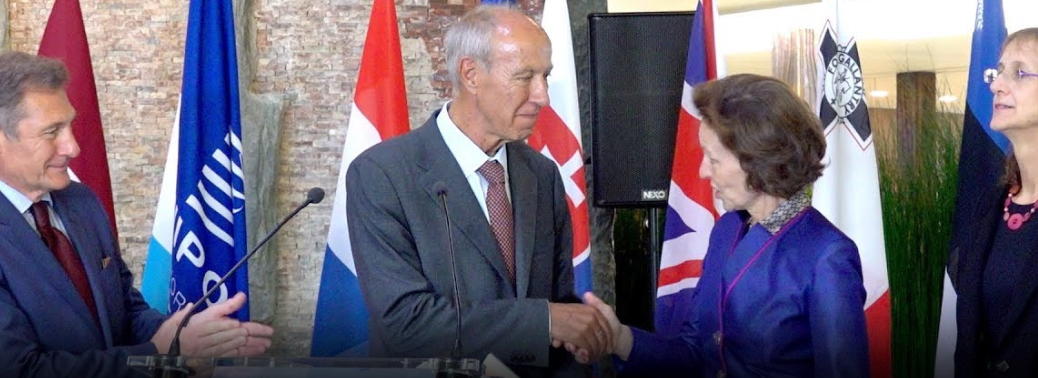WIPO’S Marrakesh Treaty
23, Oct 2018

Prelims level : International Treaties
Mains level : International Institutions, Agencies.
- The European Union has joined WIPO’s Marrakesh Treaty in a big expansion in membership for the accord, which eases the creation and transfer across national boundaries of texts specially adapted for use by visually impaired people.
About:
- The European Union joined the Marrakesh Treaty during the 2018 WIPO Assemblies meetings, held between September 24-October 2, 2018 in Geneva. The Treaty enters into force for the European Union on January 1, 2019. The 28-nation European Union ratified the Marrakesh accord to ease access to reading material for people who are print-disabled the world over. With the EU’s ratification, the Treaty will cover 70 countries across the globe.
- The EU’s ratification marks a major advancement for visually impaired people living inside the European Union as well as in other Marrakesh Treaty contracting parties, allowing them to enjoy texts in accessible formats currently available in any country that has implemented the provisions of the Treaty
- Only a small fraction, between one and five percent, of all literature is accessible to blind and visually impaired people, that sum represents a book famine. If we can unlock for blind people that knowledge, that hope, that thinking – then we will have indeed can make a very significant step.
- This Treaty is a great achievement for WIPO. It shows, indeed, that multilateralism is still alive and that through it, we can take some very practical steps that can change people’s lives.
Marrakesh treaty:
- The Treaty was adopted on June 27, 2013, at a diplomatic conference organized by WIPO and hosted by the Kingdom of Morocco in Marrakesh. The Treaty entered into force on September 30, 2016, three months after it gained the necessary 20 ratifications or accessions by WIPO member states. India was the first country to ratify the treaty as of now 80 countries have signed the Treaty and 41 states have ratified it.
- The Marrakesh Treaty addresses the “book famine” by requiring its contracting parties to adopt national law provisions that permit the production of books in accessible formats, such as braille, e-text, audio or large print, by organizations known as authorized entities that serve people who are print disabled.
- It also allows for the exchange of such accessible texts across national boundaries, all without requesting authorization from the copyright owner.
- The World Health Organization estimates that 253 million are living with visually impairments around the world, with the majority located in lower-income countries.
ABC – The Accessible Books Consortium:
- WIPO and its partners created the Accessible Books Consortium (ABC) in 2014 to help implement the objectives of the Marrakesh Treaty at a practical level.
- ABC works in three areas: the sharing of technical skills in developing and least developed countries to produce and distribute books in accessible formats, promoting inclusive publishing, and building an international on-line catalogue and book exchange of accessible books, known as the ABC Global Book Service.
- Currently, 43 authorized entities have joined this Service, enabling them to search and make requests for accessible books, all for free. Following the EU’s Marrakesh Treaty implementation, over 270,000 titles will become available in the ABC Global Book Service for cross-border exchange, without the need to obtain authorization from the copyright owner. The sharing of works in accessible formats through the ABC Global Book Service increases the overall number of accessible works available globally.
- The Service allows participating organizations to supplement their collections from their counterparts in other countries without charge and then distribute to persons in their country who are blind, visually impaired or otherwise print-disabled.
About WIPO:
- The World Intellectual Property Organization (WIPO) is the global forum for intellectual property policy, services, information and cooperation.
- A specialized agency of the United Nations, WIPO assists its 191 member states in developing a balanced international IP legal framework to meet society’s evolving needs.
- It provides business services for obtaining IP rights in multiple countries and resolving disputes. It delivers capacity-building programs to help developing countries benefit from using IP. And it provides free access to unique knowledge banks of IP information.






